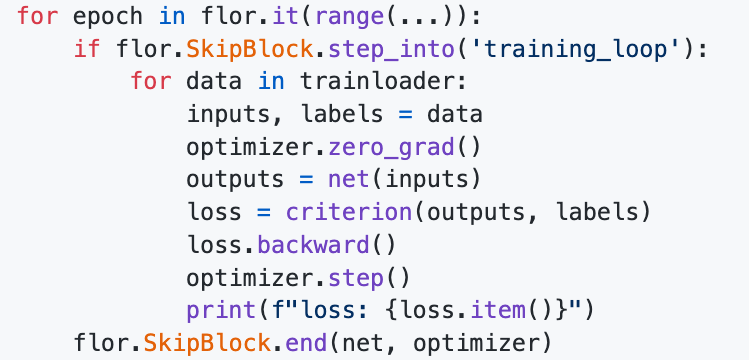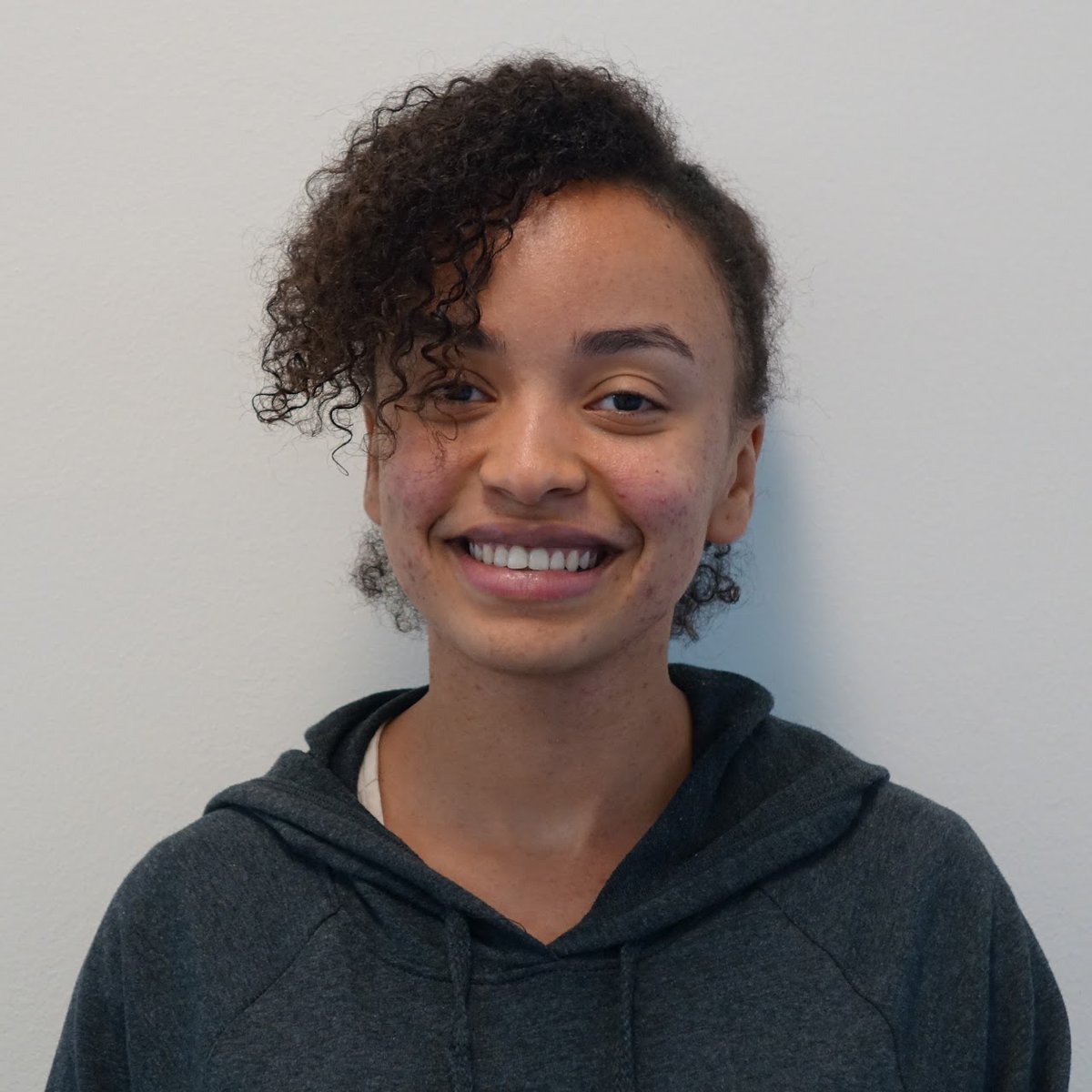PLAITLab
Programming Languages for Approachable and Inclusive Tools
@ UC Berkeley EECS
Research Themes
PL for Social Good
We invent usable programming tools to help teams with little or no formal computing education—social scientists, journalists, lawyers, scientists, advocates for marginalized groups, and other domain experts. (Working for social good and struggling to write code or process data? Get in touch!)
PL+HCI
We combine techniques from Programming Languages and Human-Computer Interaction to make programming languages and programming tools that work better for coders and non-coders alike.
Projects
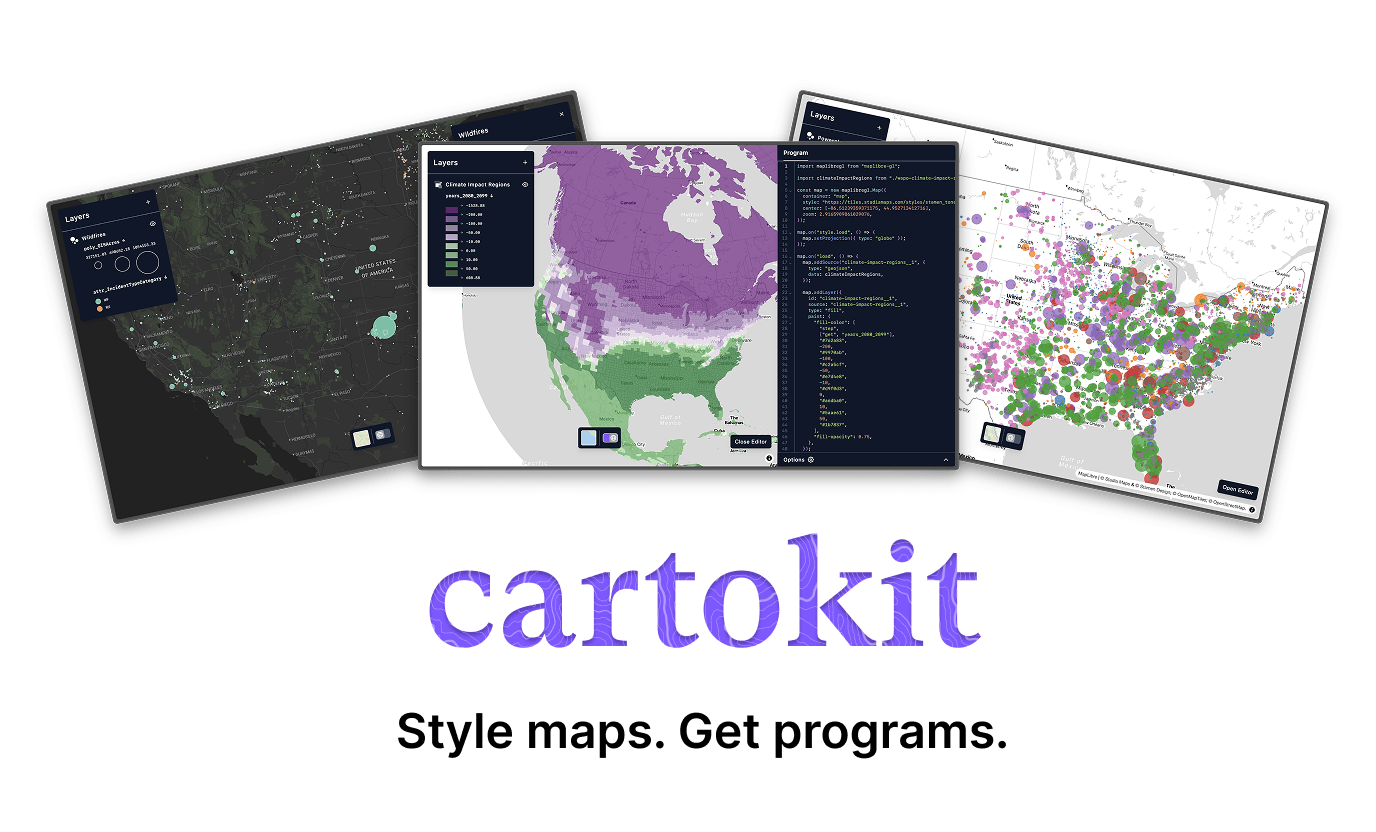
cartokit
A direct manipulation programming system for interactive cartography on the web. cartokit allows you to analyze and visualize geospatial data using familiar direct manipulation interactions while simultaneously generating JavaScript or TypeScript code for your map.
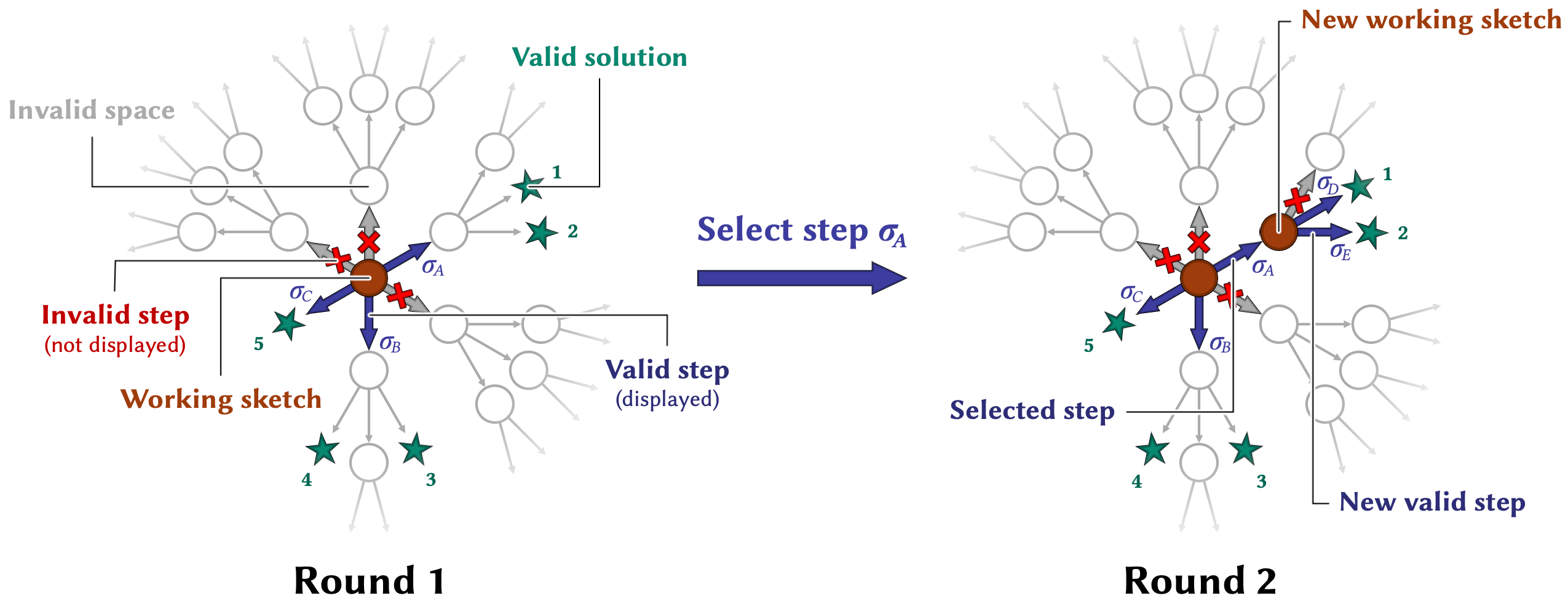
Programming by Navigation
A new interactive program synthesis paradigm to empower domain experts to write the code they need without programming expertise.

Pagebreaks
Global variables in computational notebooks are confusing, but notebook users are reluctant to use functions. We built an understanding of why, then designed and implemented a new notebook-customized scoping construct.
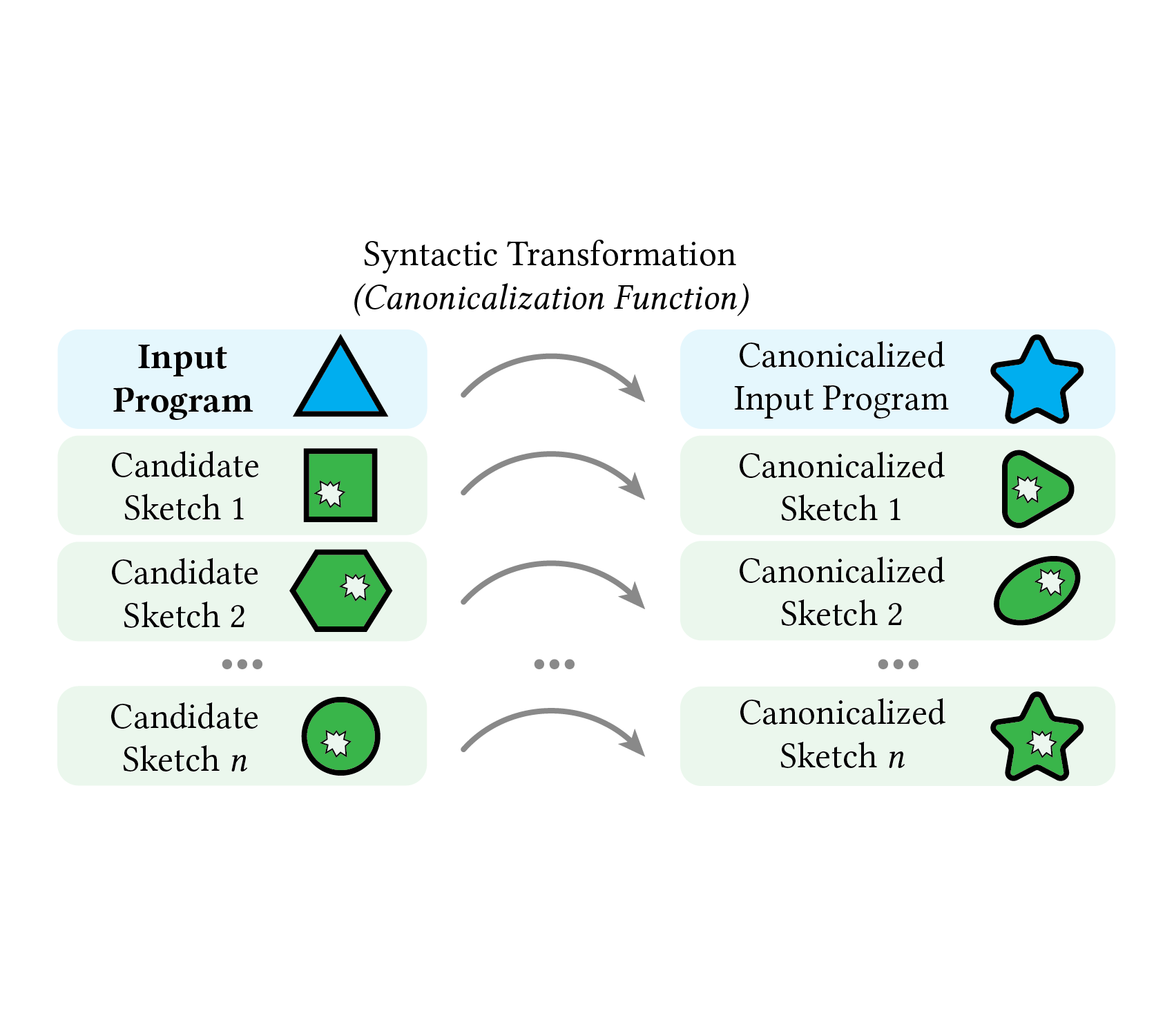
cobbler: The Component-Based Refactoring Synthesizer
A program synthesizer that synthesizes compositions of library components equivalent to user-provided code using a novel and fast program equivalence check. Refactors thousands of real-world programs!
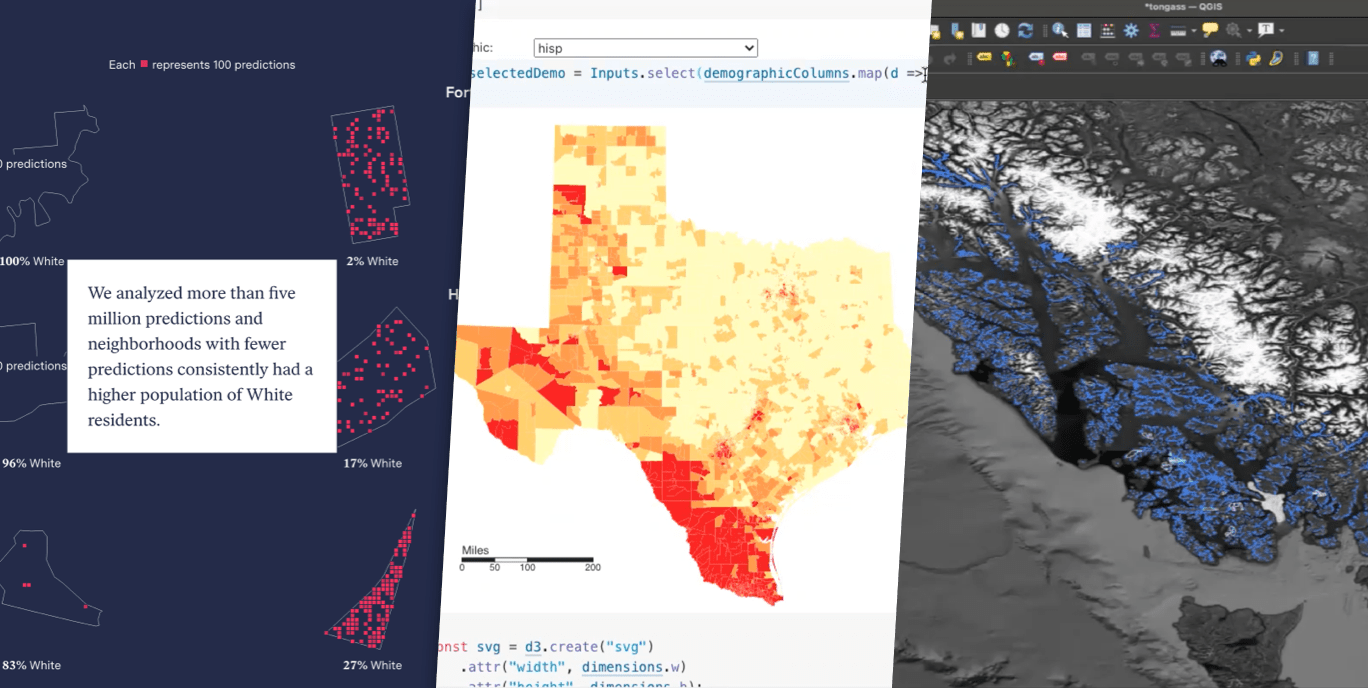
A Need-Finding Study with Users of Geospatial Data
A contextual inquiry study exploring the challenges users face in finding, transforming, analyzing, and visualizing geospatial data, drawing on participants from Earth and climate science, the social sciences, and data journalism.

Program Sketches with Scorer Holes
A program synthesizer that fills sketch holes with scorer programs. Suitable for use in domains with messy, unstructured and semi-structured inputs.
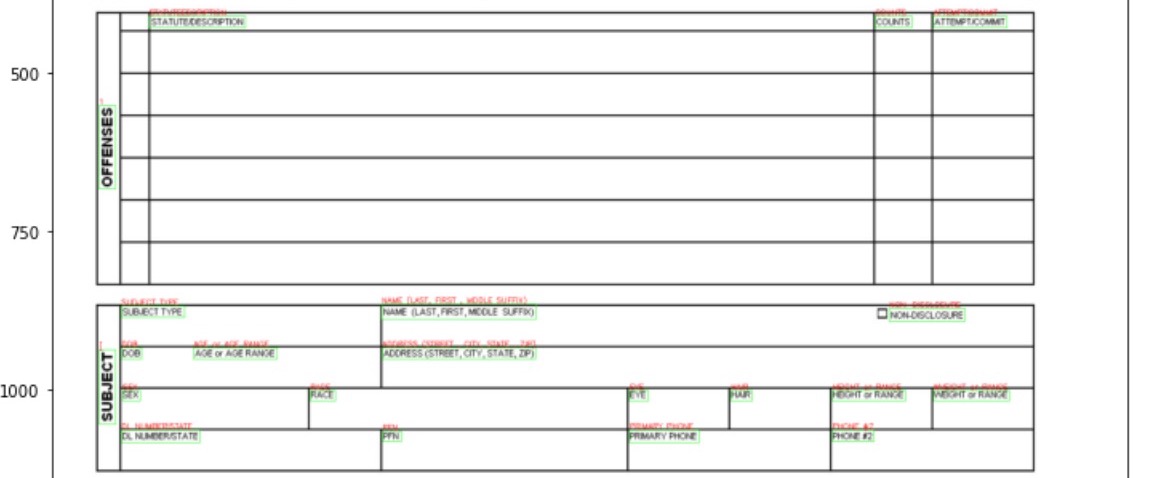
Marshall: Extracting Structured Data from Templated Documents
An instantiation of the Program Sketches with Scorer Holes synthesis framework that extracts structured information from templated PDFs.
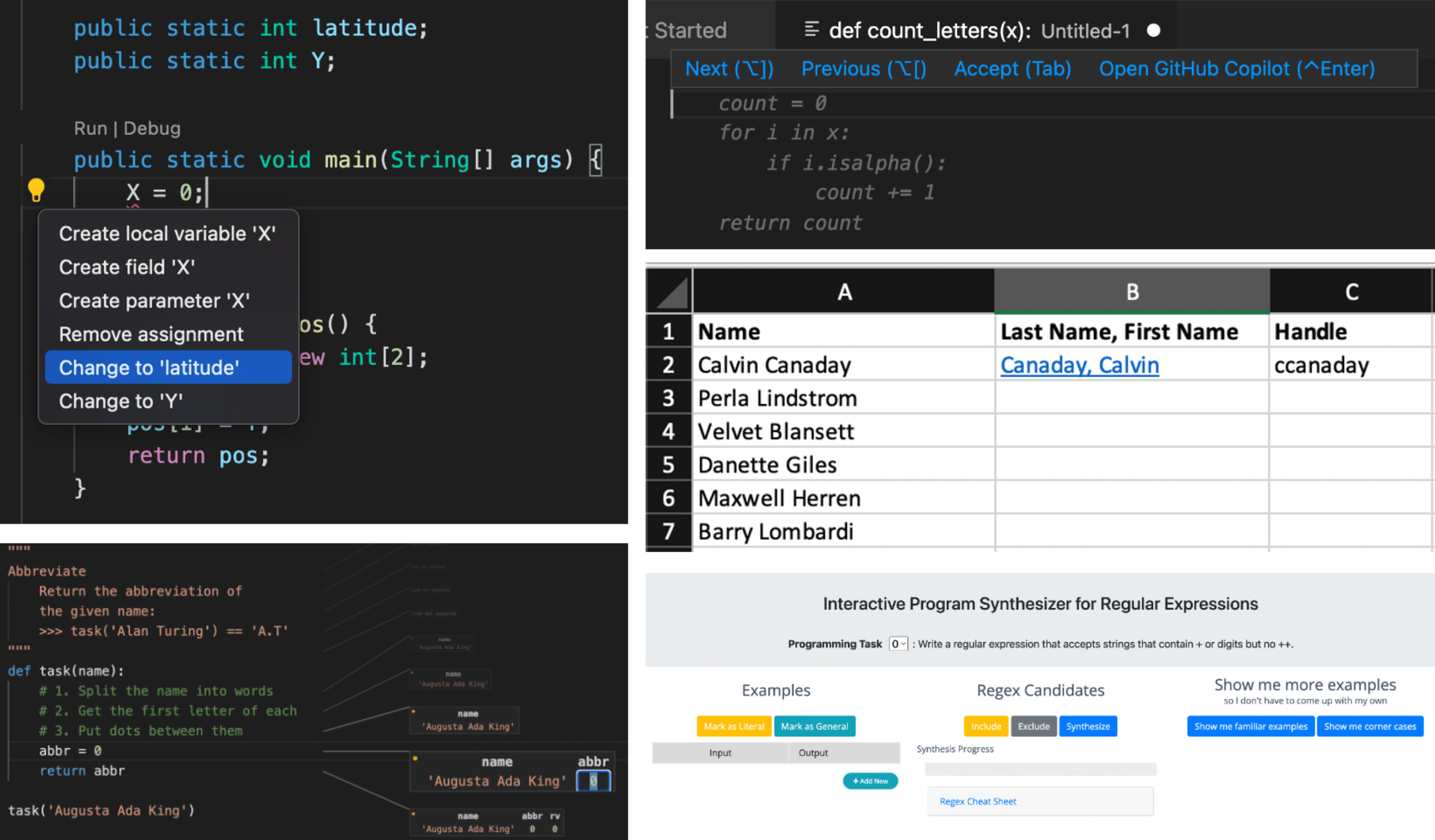
Exploring the Learnability of Program Synthesizers by Novice Programmers
A thematic analysis on the first-use usability of program synthesizers by novice programmers, including findings on specification modalities, interpreting synthesis outputs, and user behaviors.
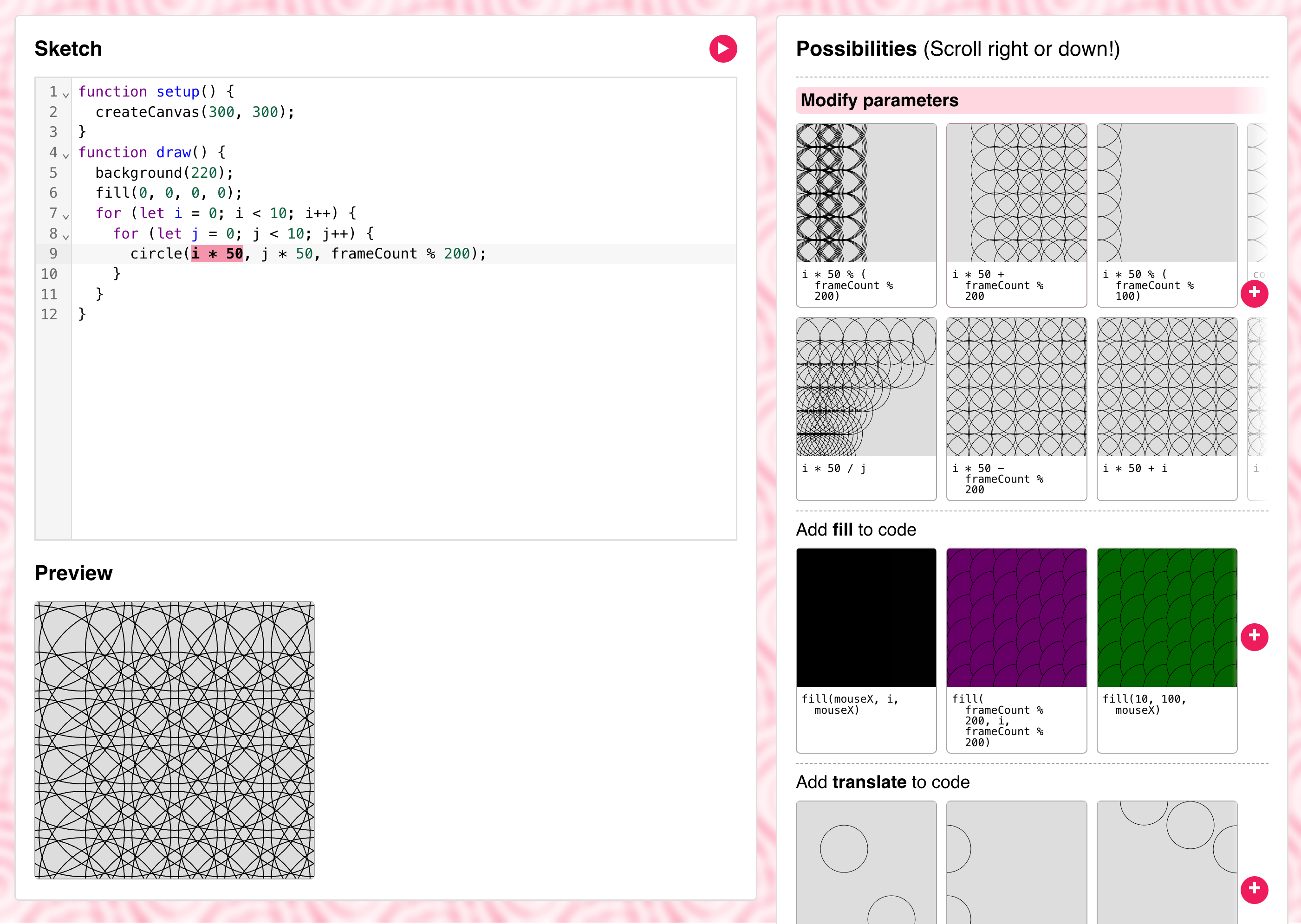
Programming by Scaffolded Demonstration
A new programming modality where users construct programs by selecting among the outputs of possible next-step edits to their current program.

Syntactic Code Search with Sequence-to-Tree Matching
A new lightweight code search query language based on tokenizers and tree automata to support accurate and incremental syntactic search queries for interactive settings.
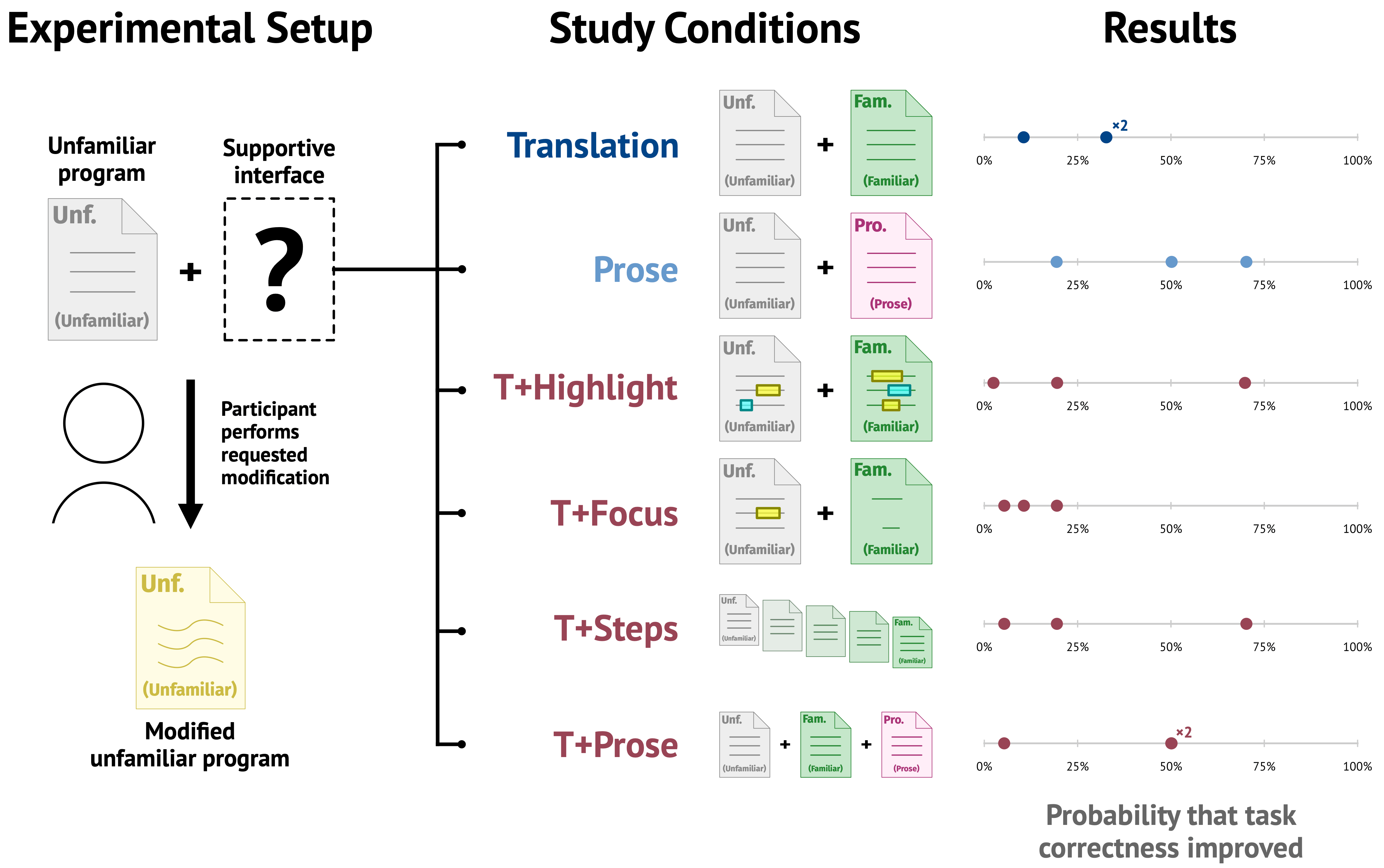
Exploring the Translation-As-Explanation Folk Wisdom for Program Editing Tasks
A controlled trial to investigate whether program translations assist programmers editing code in an unfamiliar language. We found that there was a 67%–89% chance that translations alone actually made participants less likely to complete program modification tasks correctly in our study.
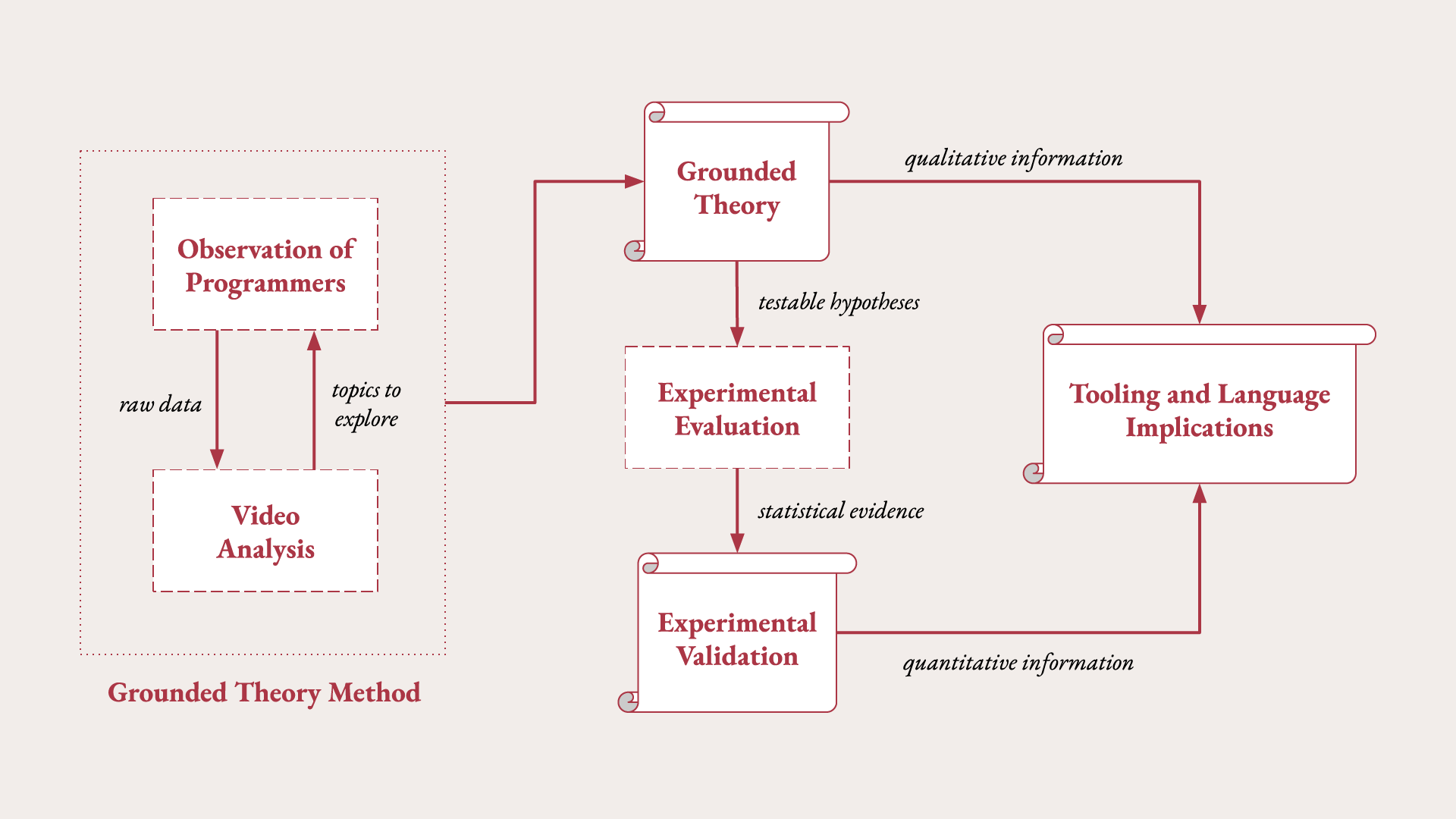
How Statically-Typed Functional Programmers Write Code
A grounded theory (and experimental validation) of how statically-typed functional programmers write code, covering domain modeling, type construction, focusing techniques, exploratory strategies, mental models, and expressions of intent.
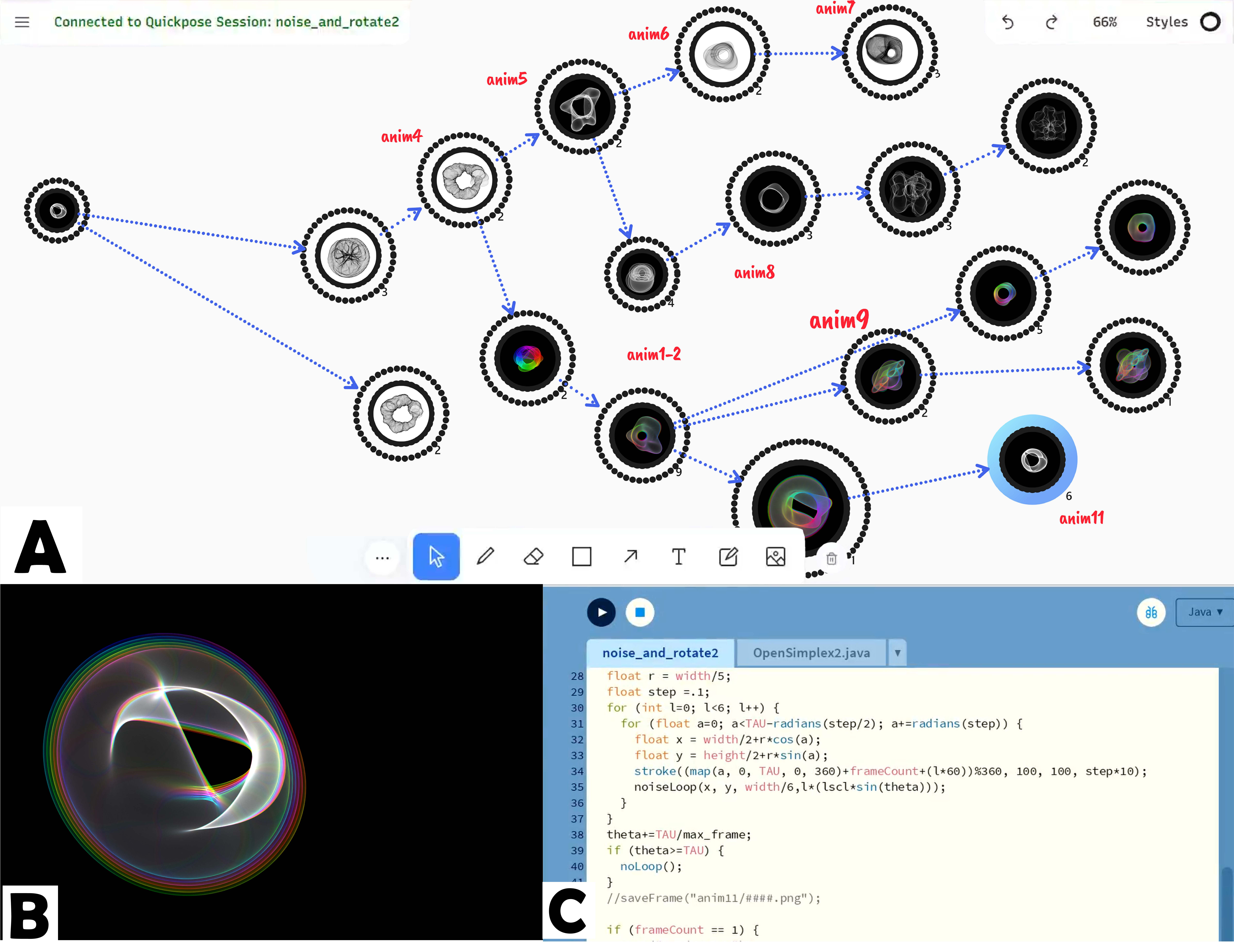
Understanding Version Control as Material Interaction with Quickpose
A version control tool for creative programmers. We used this tool to study how people use different versions of their programs in their process—navigating between, annotating and arranging, and backtracking to previous versions of their programs.
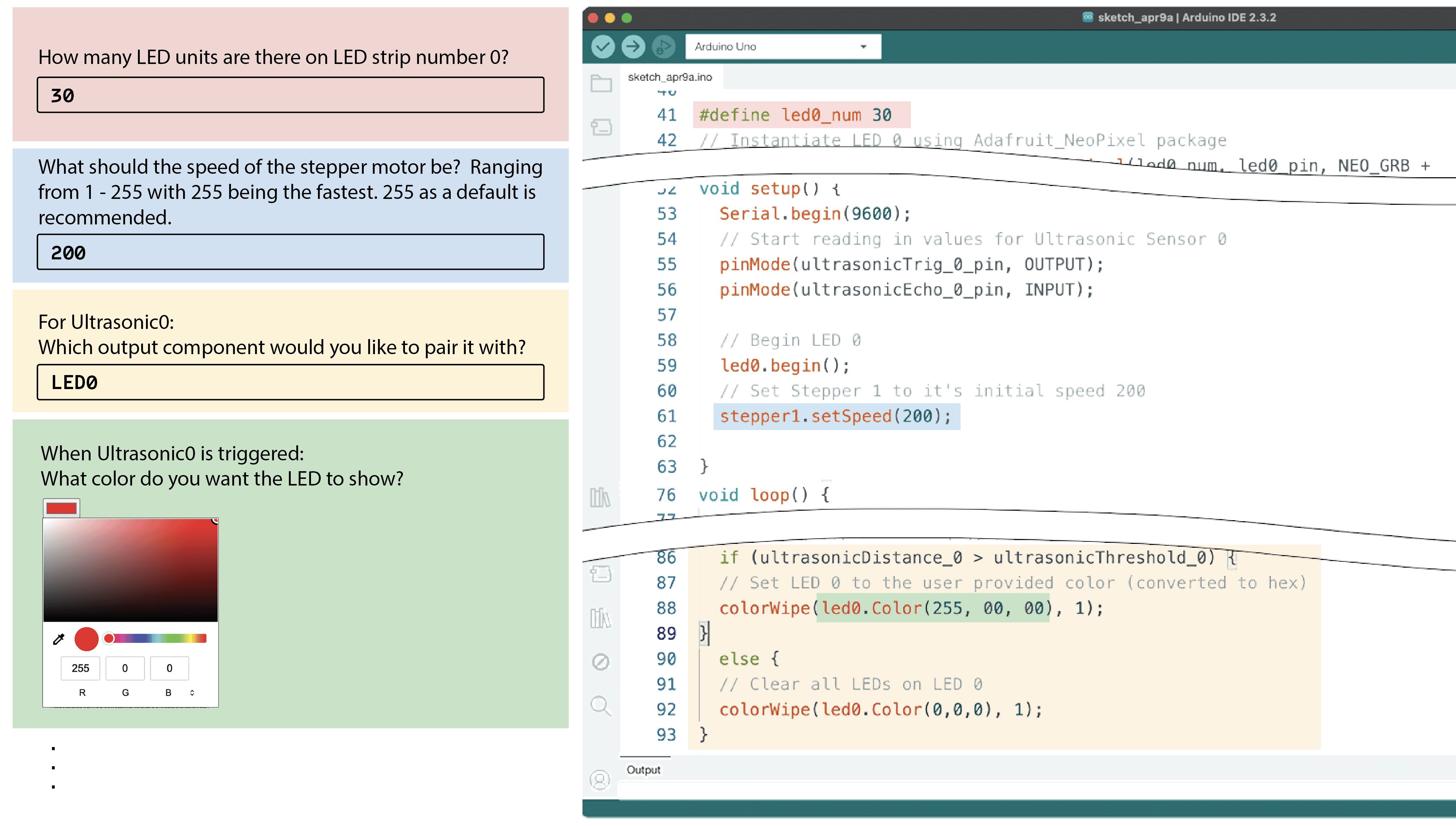
CodePlate: Structured Natural Language Interactions for Arduino Programming Tasks
A structured natural language interaction to generate Arduino programs, used to probe how different styles of natural language programming can affect programmer understanding.
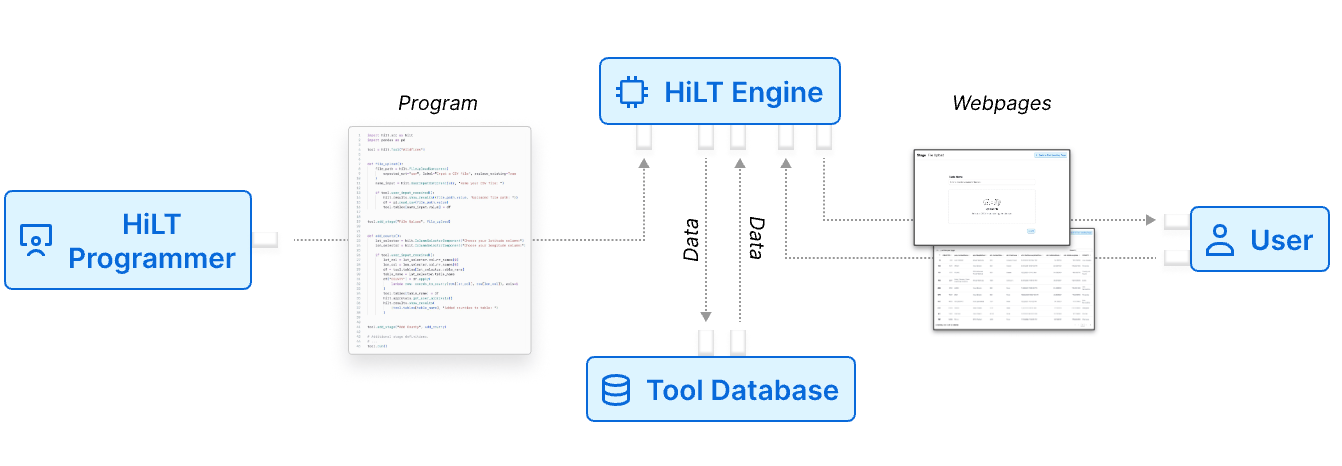
HiLT: A Library for Generating Human-in-the-Loop Data Transformation GUIs
A Python eDSL for generating bespoke, human-in-the-loop data transformation GUIs.
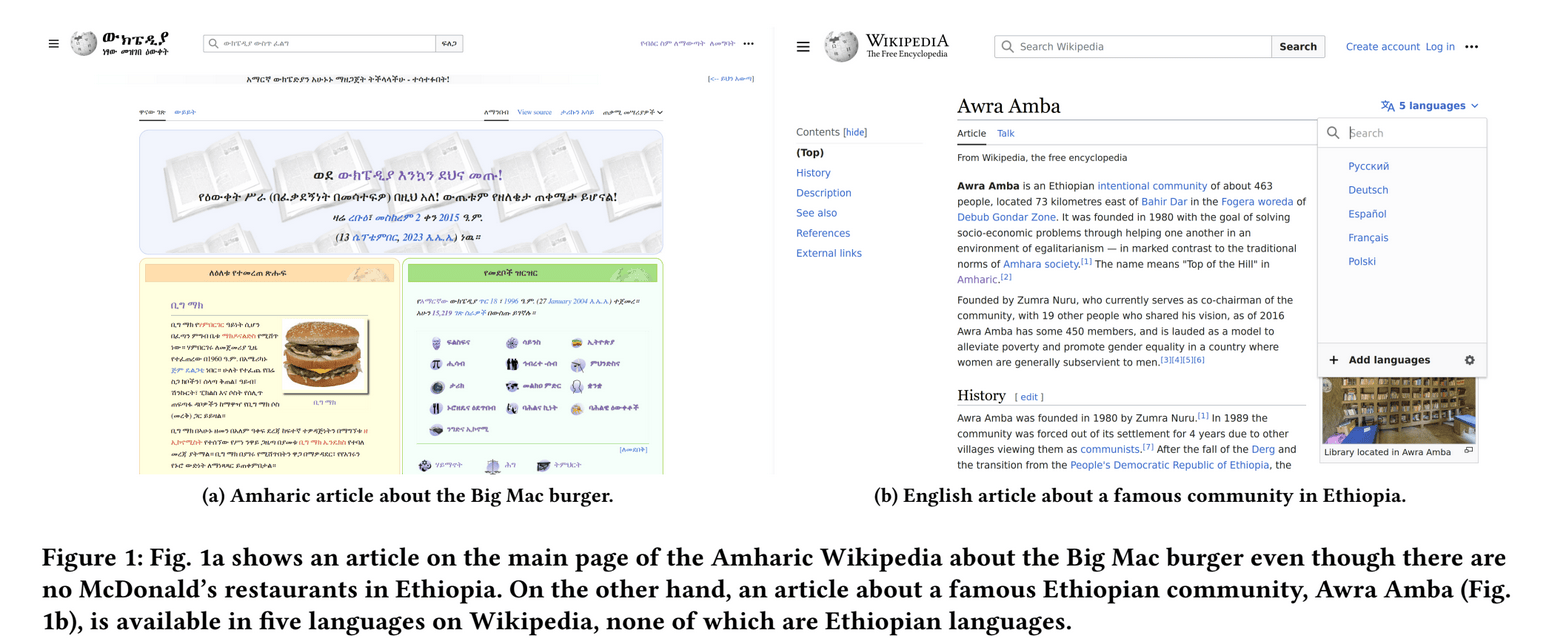
Low-Resourced Languages and Online Knowledge Repositories: A Need-Finding Study
A need-finding study with Wikipedia contributors in Amharic, Afan Oromo, and Tigrinya to understand barriers to contribution in low-resourced languages.
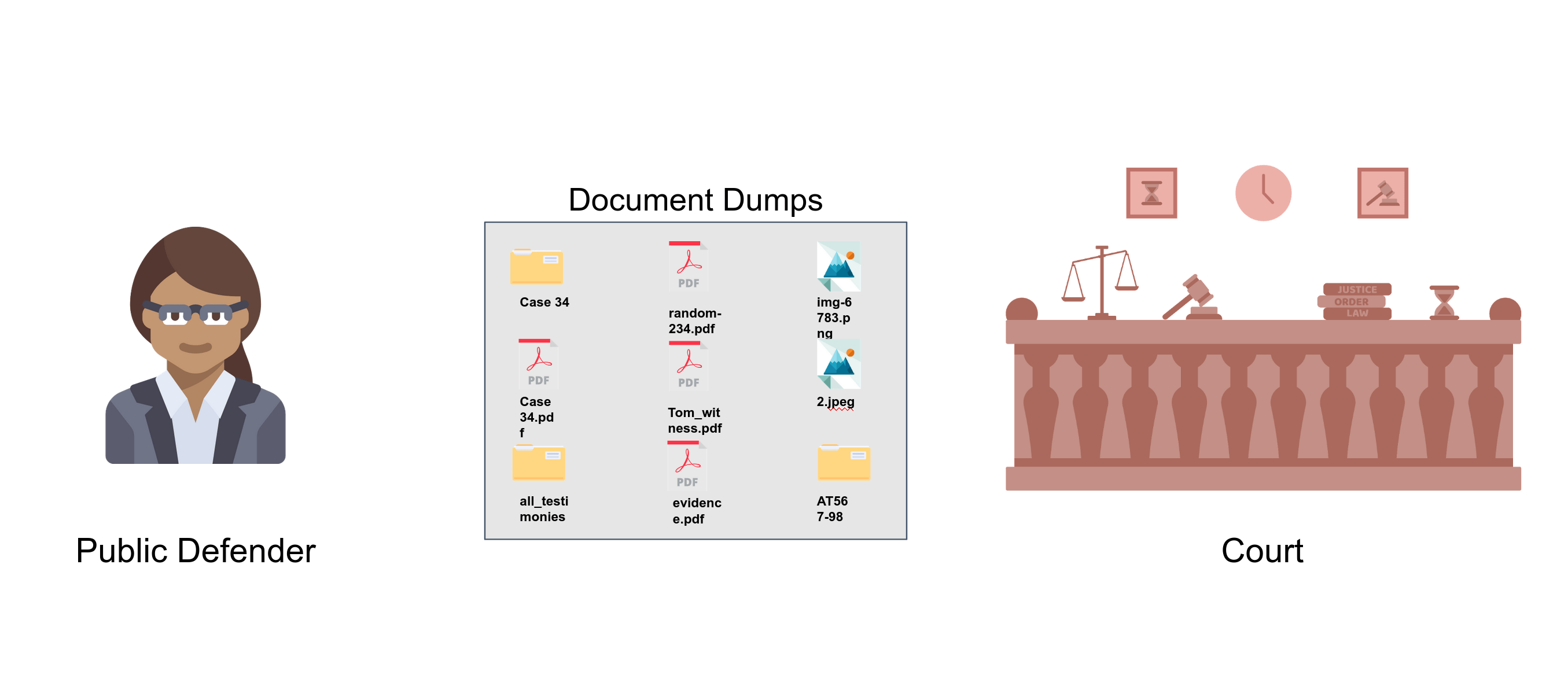
DOT: Building a Document Organization tool for the Criminal Justice Domain
A cross-disciplinary co-design project to build a Document Organization Tool for public defenders and investigative journalists working on police use-of-force and misconduct data disclosures.
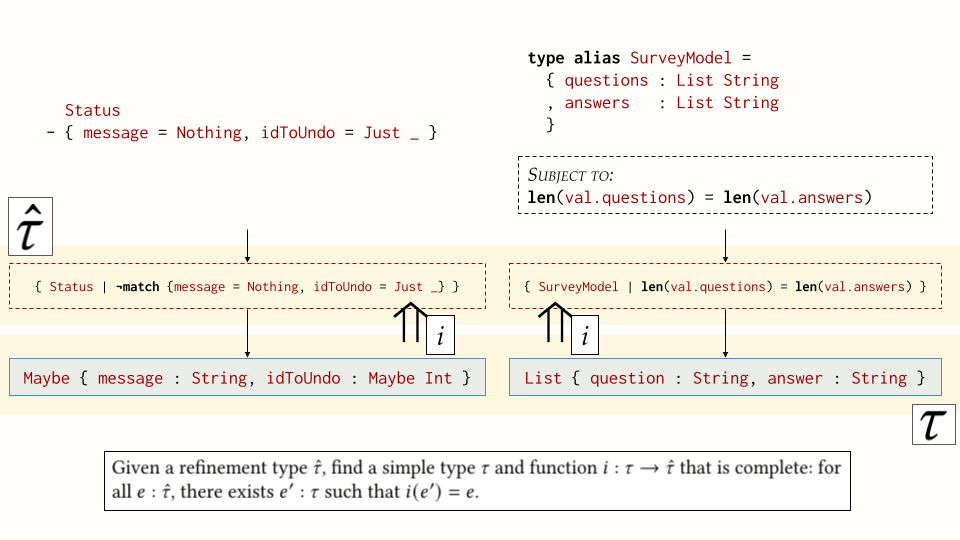
Simplifying Refinement Types
A deterministic syntax-directed algorithm to synthesize simple types that guarantee contraints from a refinement type, including common background theories and an OCaml implementation.

Change in Software Ecosystems
An analysis of social barriers to implementing 'breaking changes' in existing software ecosystems; opportunities for new techniques to automate upgrades.
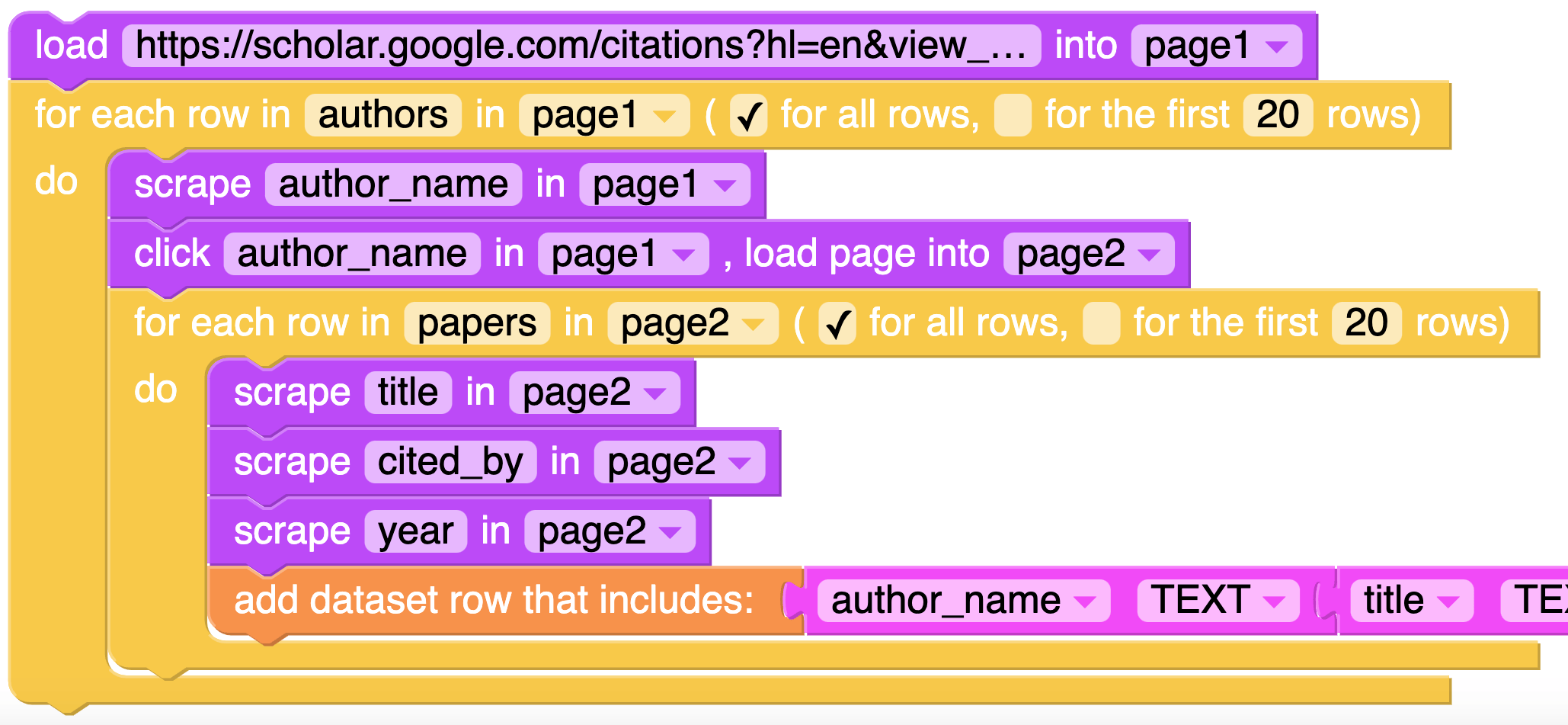
Helena
A Programming-by-Demonstration tool for automating repetitive interactions with webpages. Designed for non-programmers from the social sciences.
People
Alums
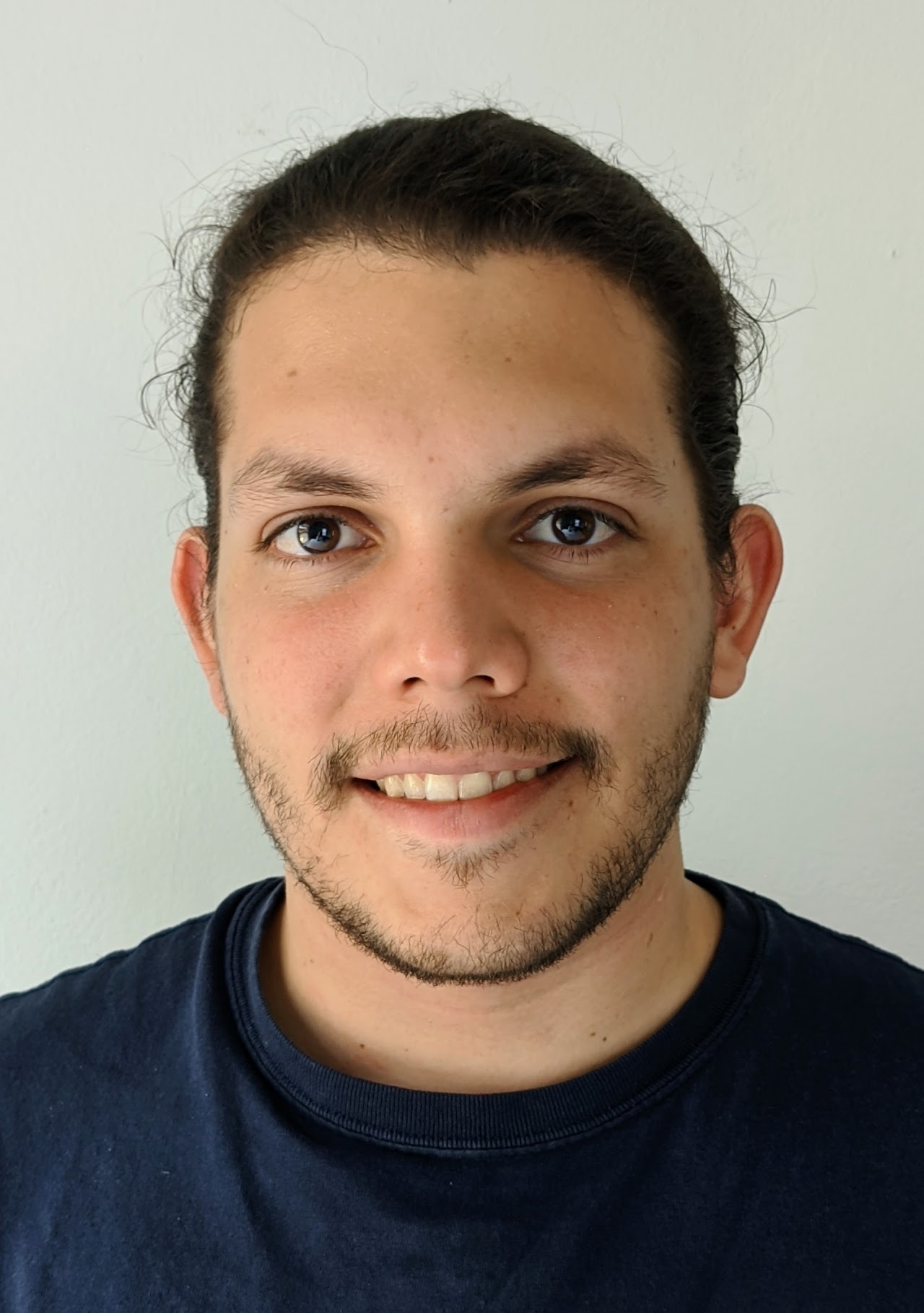
Gabriel Matute, MS

Laila Walker, Undergraduate

Pragya Kallanagoudar, Undergraduate

Angela Bi, Undergraduate

Xiaorui Liu, Undergraduate

Rolando Garcia, PhD
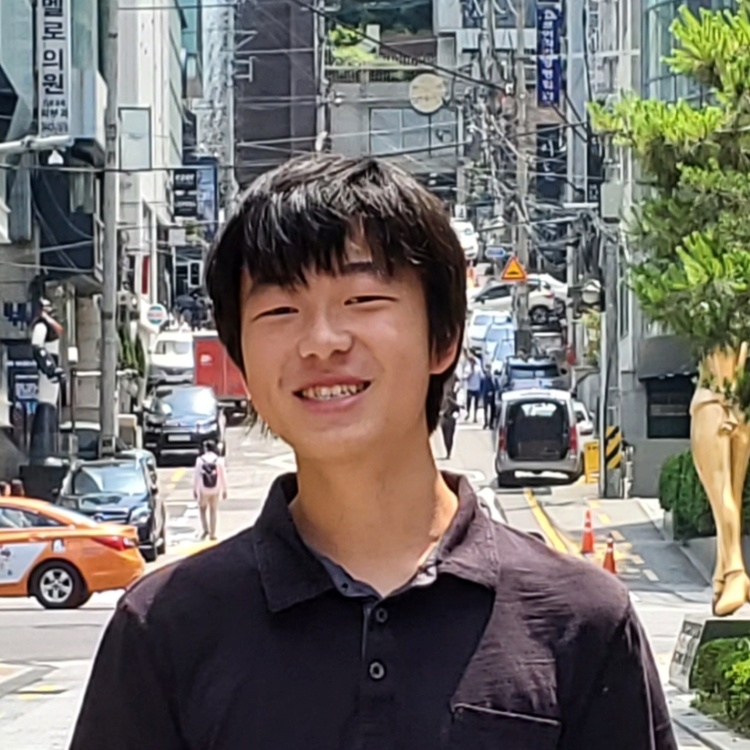
Jacob Yim, MS

Jeremy Ferguson, MS
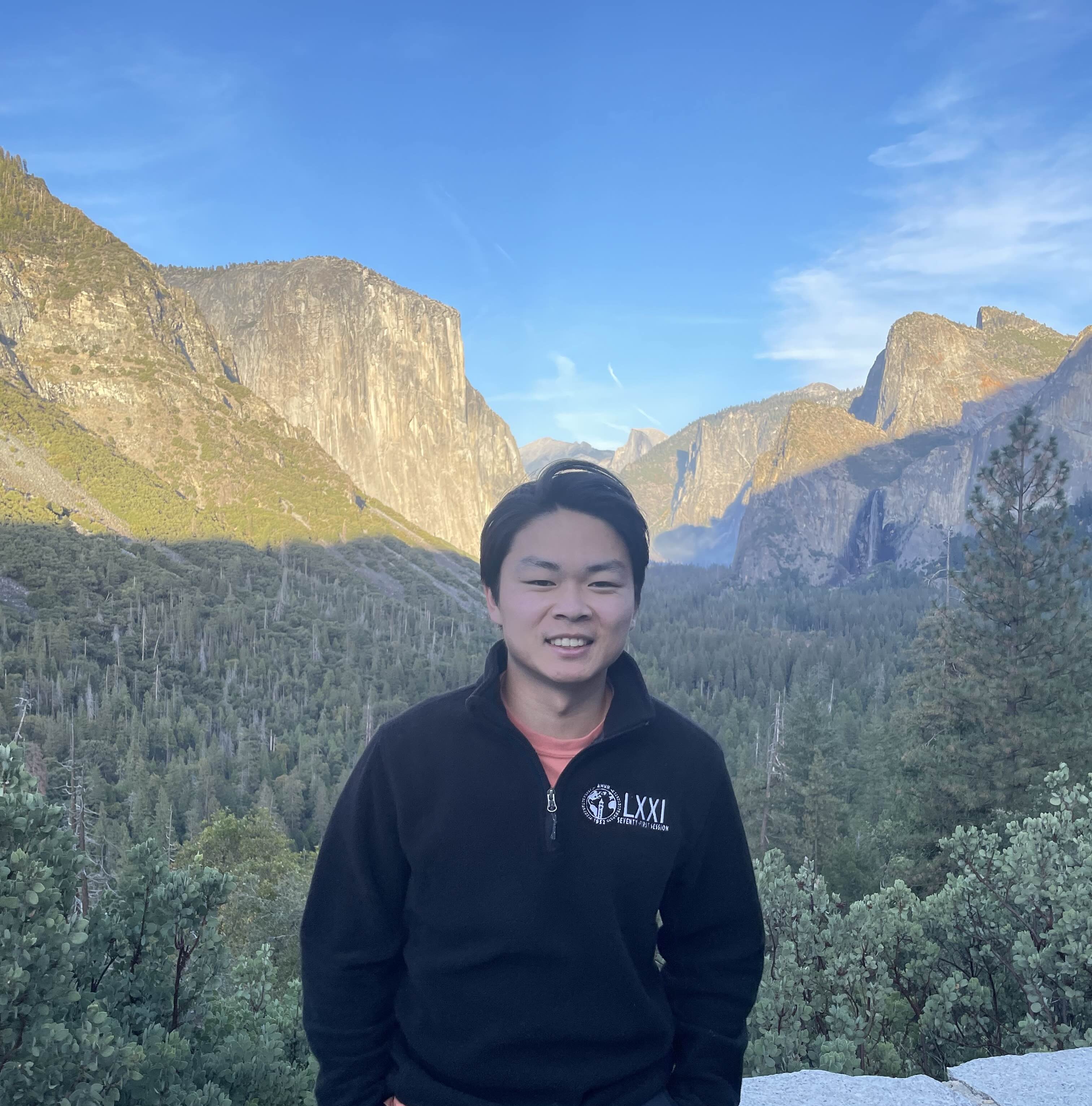
Sora Kanosue, MS

Lisa Rennels, MS

Liliana Rojas, Assistant

Kevin Ye, Undergraduate

Dhanya Jayagopal, MS
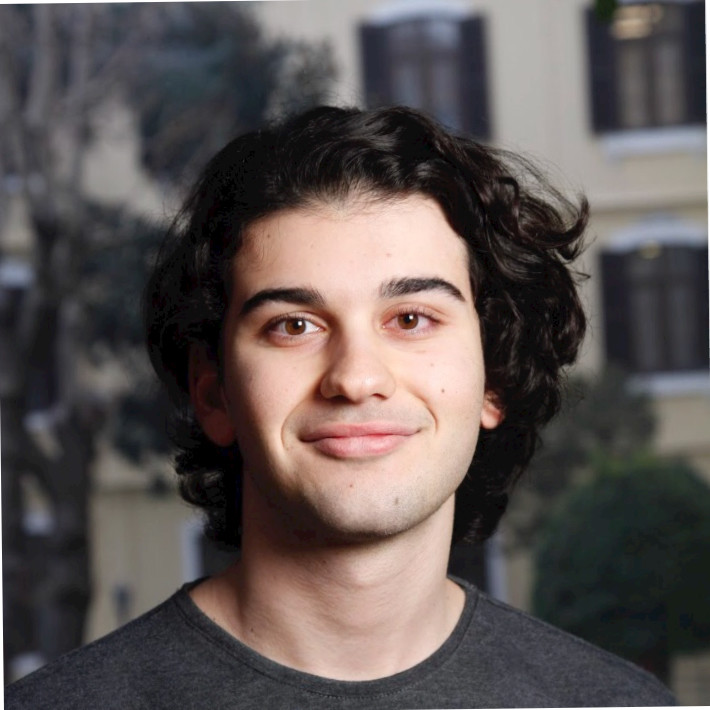
Arda Demirci, Undergraduate

Selina Kim, Undergraduate

Rajavi Mishra, Undergraduate

Hannah Perlstein, Undergraduate
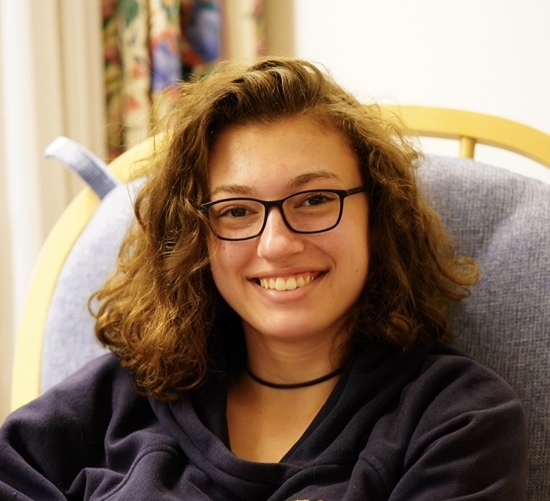
Rebecca Hicke, Undergraduate
Collaborations Outside Computing
- David Anthoff's Energy and Resources Lab, and especially Lisa Rennels;
- the Chan Zuckerberg Biohub;
- Computational Research for Equity in Legal Systems (CRELS);
- the Grist climate reporting newsroom;
- Kyle Crowder and the Crowder Sociology lab and especially Chris Hess and Ian Kennedy;
- Erin Kerrison and the Kerrison Lab in Social Welfare;
- KQED and especially Lisa Pickoff-White;
- the National Association of Criminal Defense Lawyers and especially the Full Disclosure Project;
- James Nuñez and the Nuñez Lab in Molecular and Cell Biology;
- Mercedes Paredes and the UCSF Paredes Lab on Neurodevelopment and Disease;
- Cheryl Phillips and Big Local News;
- the Urban Displacement Project and especially Tim Thomas
